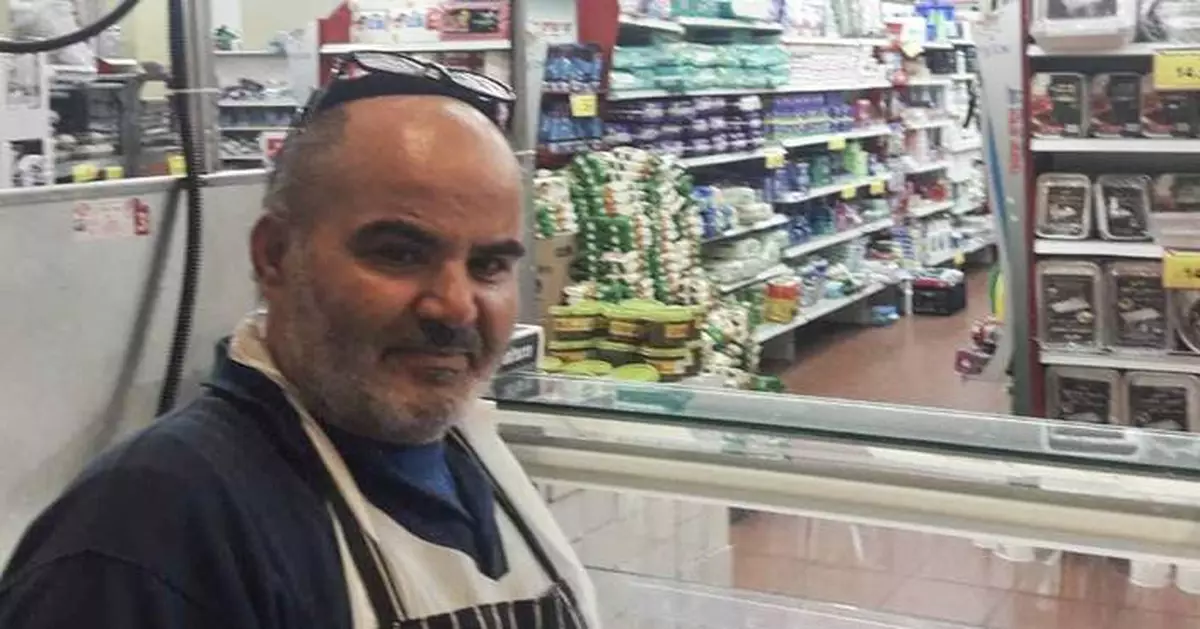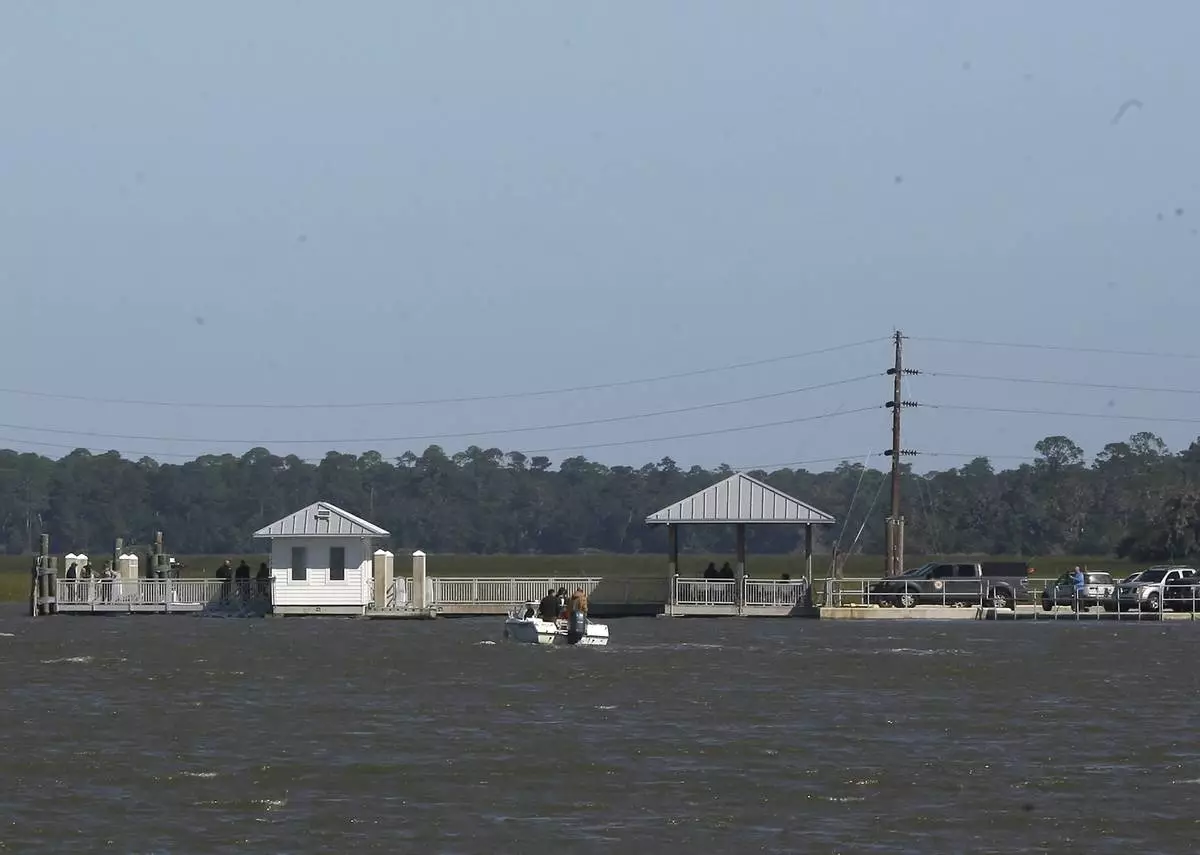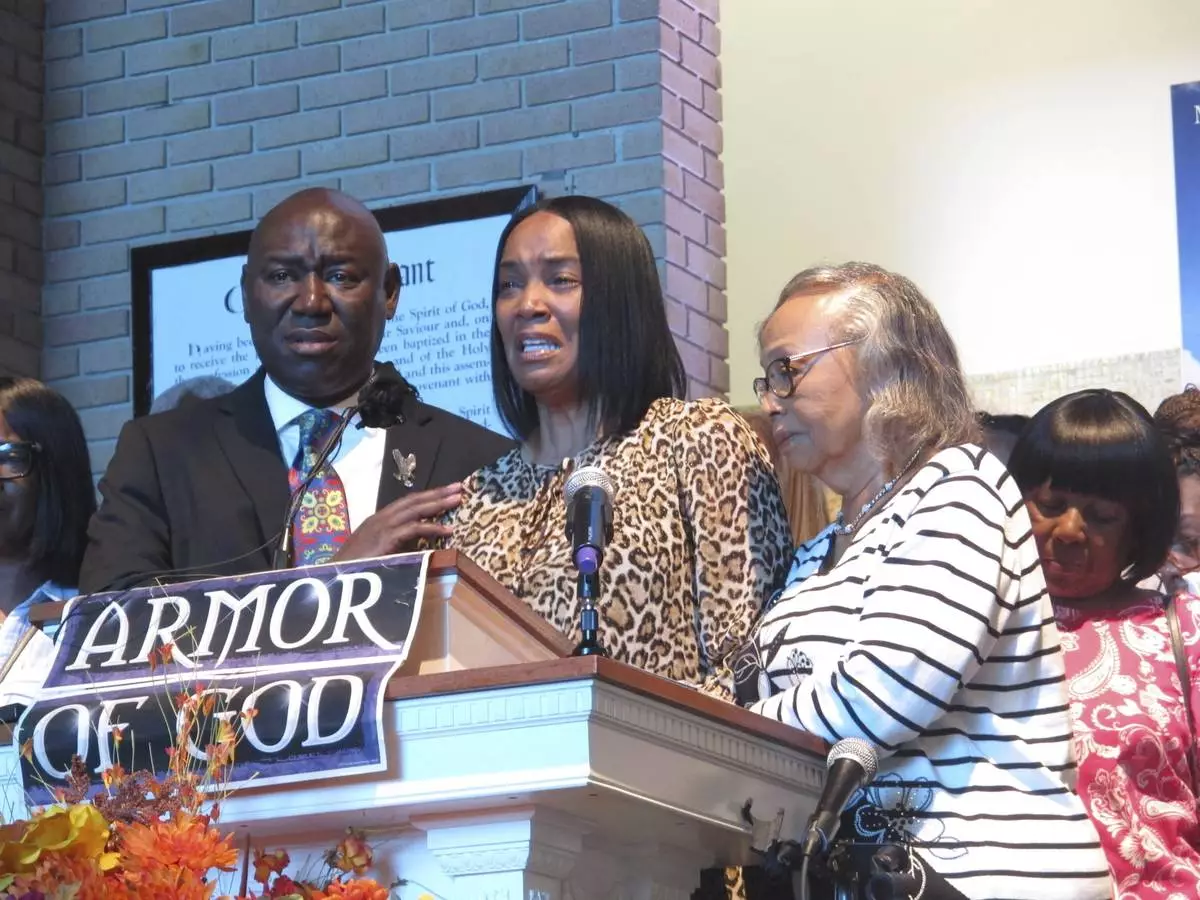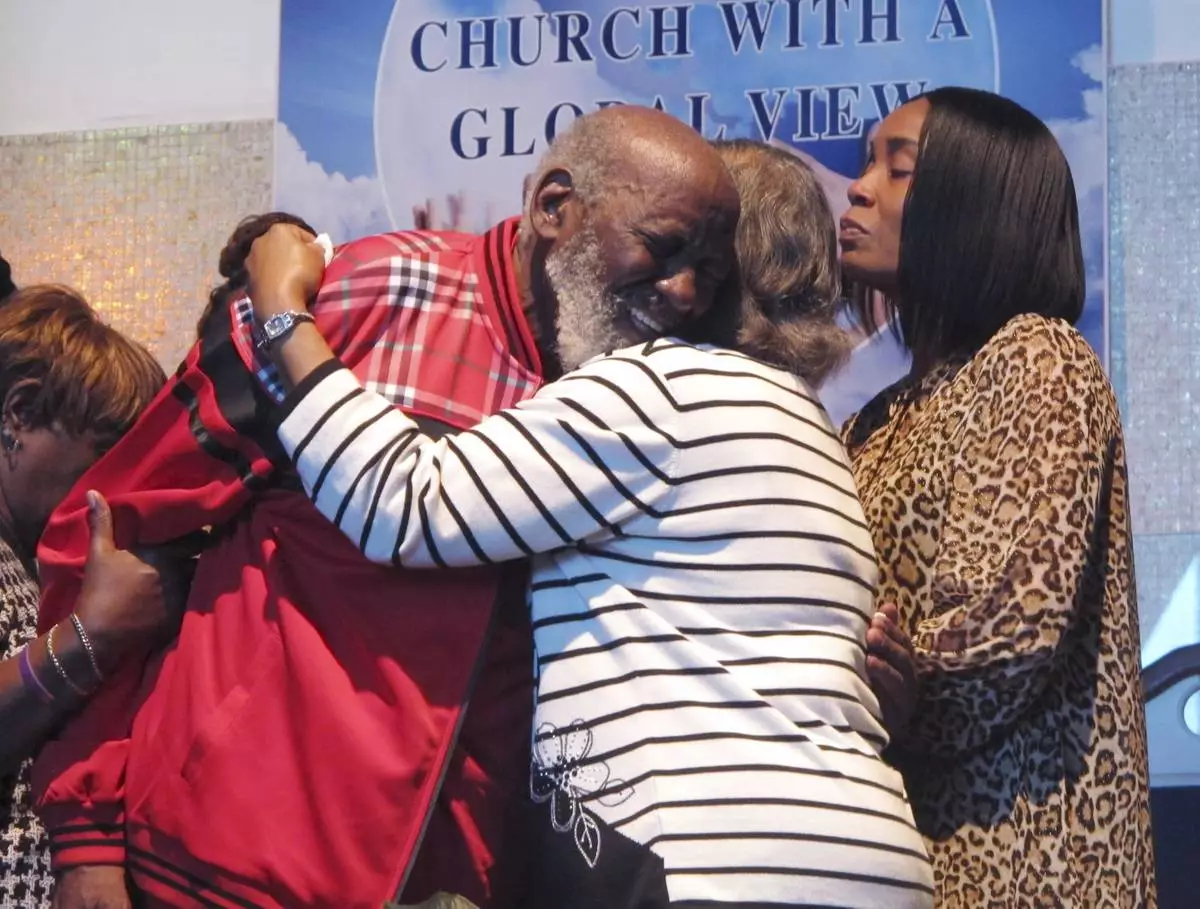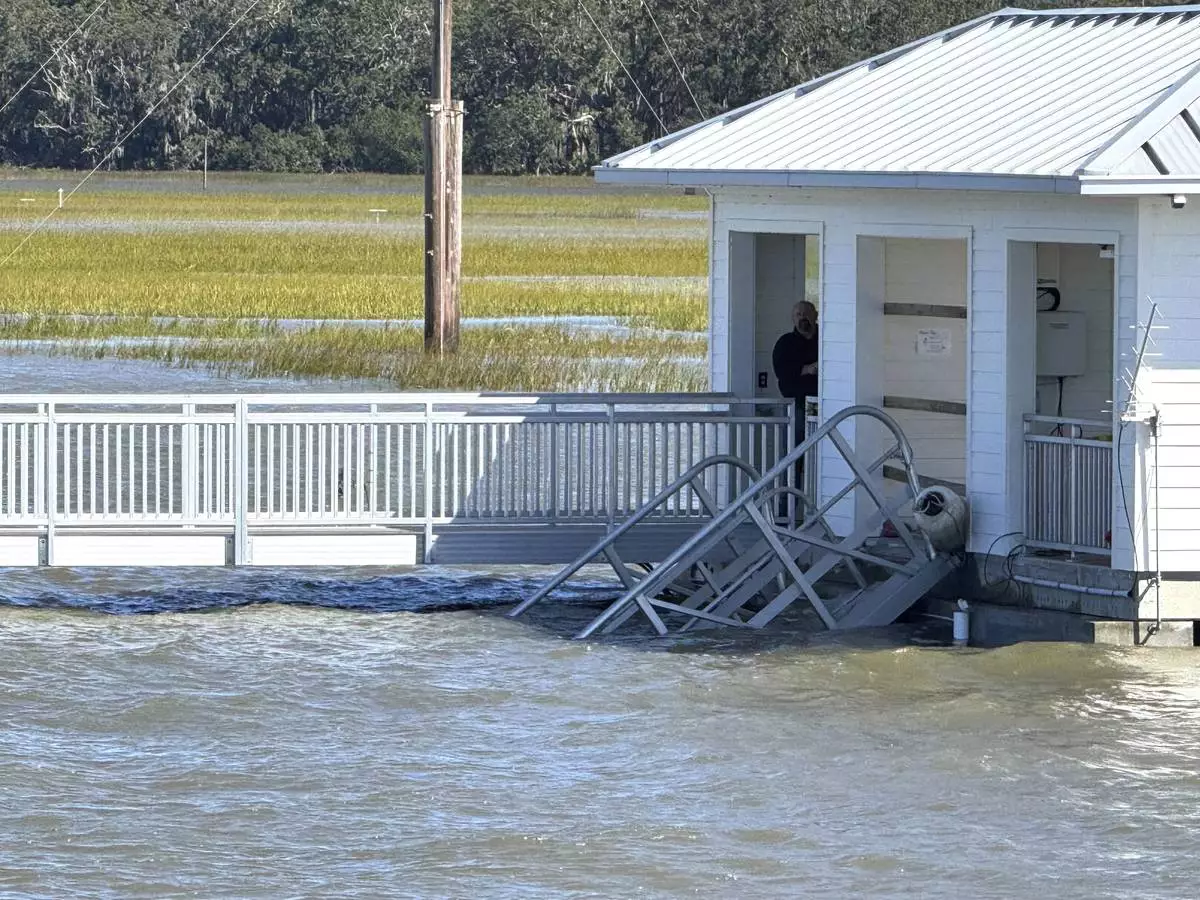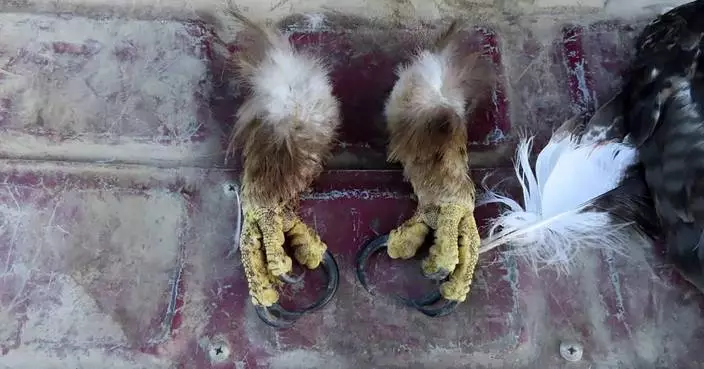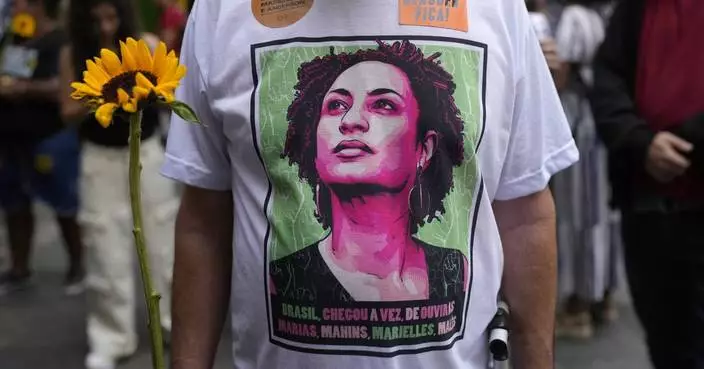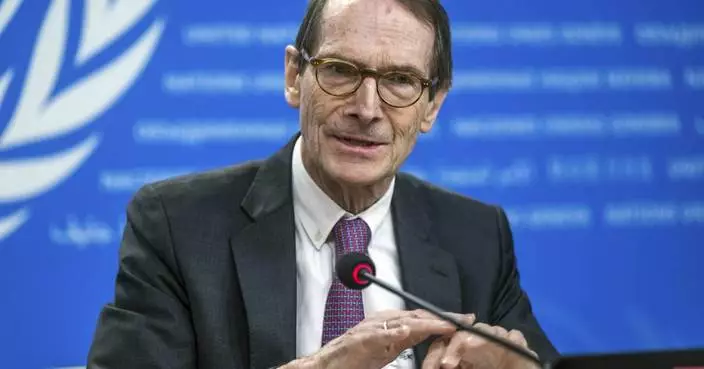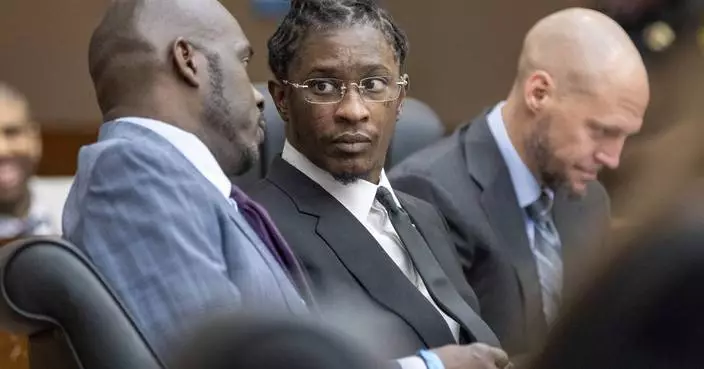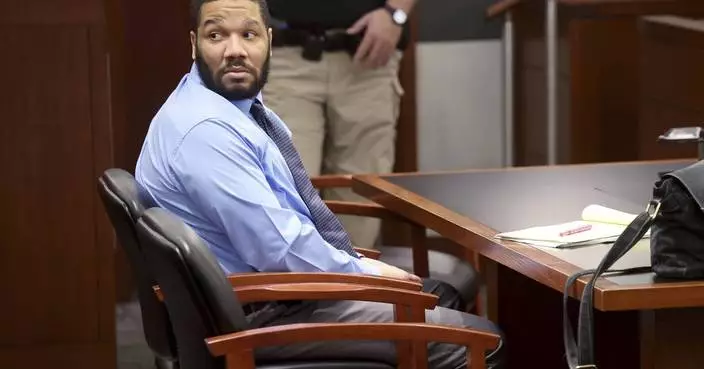JERUSALEM (AP) — At first, it seemed like the kind of shooting that has become all too common in the Israeli-occupied West Bank. A Palestinian aroused suspicions and an Israeli soldier killed him.
But then the deceased was identified as David Ben-Avraham, a Palestinian who had made the almost unheard-of decision to convert from Islam to Judaism years earlier.
His unusual journey had taken him across some of the deepest fault lines in the Middle East and led to some unlikely friendships. Most Palestinians saw him as an eccentric outcast, while many Israelis treated him as an unwelcome convert to a religion that doesn’t proselytize.
But in his final moments, he was once again viewed as a Palestinian who was in the wrong place, at a time of widespread anger and suspicion.
He was born Sameh Zeitoun in Hebron, home to some 200,000 Palestinians as well as hundreds of Jewish settlers who live in enclaves guarded by Israeli troops. Tensions have run high for decades, often spilling over into violence.
Rights groups have long accused Hebron’s settlers of harassing Palestinian residents, and Palestinians have committed a number of stabbing and shooting attacks against Israelis over the years.
At its most extreme, the bitter neighbors live just a few meters apart. In some narrow alleys of Hebron’s Old City, metal netting protects Palestinian shoppers from objects thrown by settlers living on the upper floors.
Zeitoun first made contact with Jewish settlers over a decade ago, asking for help converting to Judaism, according to Noam Arnon, a Jewish settler in Hebron who went on to befriend him.
He said Zeitoun was inspired by family stories about his grandfather protecting Jews when riots erupted in 1929, when the Holy Land was under British colonial rule. Palestinians killed dozens of Jewish residents in the city.
“He went further, not only to live as a good neighbor but to join the Jewish community,” Arnon recounted.
Conversion to other faiths is deeply frowned upon in Islam. In much of the Muslim world, those who do so are cast out of their communities, sometimes violently. Judaism, unlike Islam and Christianity, has no tradition of proselytization.
Such a conversion is even more fraught in Israel and the Palestinian territories, where religion and nationality usually overlap in a decades-old conflict. Judaism is the faith of most of the soldiers who patrol the territory and the settlers whom Palestinians see as hostile colonizers.
Arnon said most of the settlers from Hebron’s tight-knit community refused to accept Ben-Avraham. Only Arnon and a few others interacted with him, helping with his conversion application papers.
Religious conversions are rare but legal in areas administered by the semi-autonomous Palestinian Authority. Most are undertaken by Palestinian Christians converting to Islam for marriage.
In Israel, converting to Judaism requires an application to the government-run Conversion Authority. Ben-Avraham submitted two requests in 2018 but did not meet the requirements, according to a government official who was not authorized to speak with media and spoke on condition of anonymity.
With that pathway closed, Ben Avraham turned to Israel’s insular ultra-Orthodox community and eventually made his conversion official in 2020, according to documents published online.
In the year before his conversion, Ben-Avraham was detained by the Palestinian Authority’s intelligence unit in Hebron, according to Arnon and a local Palestinian activist, Issa Amro.
The reason for his arrest was never publicly disclosed, but they believe his conversion and open connections with Israelis attracted unwanted attention.
Palestinians can face arrest or even death if they're seen as collaborating with Israeli authorities. But few would have suspected Ben-Avraham of being an informant because his story was widely known.
Ben-Avraham told the Israeli news site Times of Israel that he was held for two months in solitary confinement and beaten before being released. Around that time, a video emerged showing him holding what appears to be a Quran and pledging his Muslim faith.
Arnon and Amro said his statement was likely made under duress during detention. The PA’s prosecution office said it had no information about his case.
After his release, Ben-Avraham moved in with Haim Parag, a Jewish friend who lived in Jerusalem. He returned to Hebron infrequently because of safety concerns and continued his Jewish studies. Parag said the pair regularly prayed together at a nearby synagogue.
“He was like a son to me,” he said.
Parag also said he met Ben-Avraham’s wife and some of his children, and that several close family members maintained a relationship with him even after his conversion.
The Zeitoun family declined to speak with The Associated Press, fearing reprisal. In the end, Ben-Avraham left little public record of what drove his personal convictions.
Ben-Avraham was waiting outside a West Bank settlement for an Israeli bus to take him to Parag’s apartment March 19 when he got into an argument in Hebrew with an Israeli soldier.
Across the West Bank, Jewish settlers live apart from Palestinians in guarded settlements where they're subject to different laws. Palestinians are generally barred from entering settlements unless they have work permits.
“Are you Jewish?” the soldier shouts in a video that circulated online and appears to have been shot by his body camera.
“Of course,” Ben Avraham answers.
“What’s your name?” the soldier says.
“David.” he replies.
“David?” the soldier says.
“Ben-Avraham, stupid.”
The soldier then orders Ben-Avraham to step away from his bag on the ground and raise his hands in the air, before saying sarcastically, “Jewish.”
A second video, apparently taken from a nearby security camera, appears to show two soldiers shooting Ben-Avraham from a close distance as he keels over backward onto the sidewalk.
The army said a small knife was found in Ben Avraham’s bag after the shooting. Parag said he gave him the knife for self-defense.
The Israeli army said it's investigating the shooting, but rights groups say soldiers are rarely held accountable in such situations.
Israeli forces have been on high alert as the West Bank has seen a surge of violence linked to the war in Gaza. Nearly 500 Palestinians have been killed by Israeli fire since the war's start, according to the Palestinian Health Ministry. Many have been shot dead in armed clashes during military raids, others for throwing stones at troops, and some who were posing no apparent threat.
Palestinians have also carried out several stabbing and other attacks against Israelis.
Arnon said the shooting was a tragic misunderstanding. Parag, Ben-Avraham's friend in Jerusalem, accused the soldiers of racial profiling, saying they saw Ben-Avraham for his background and not his unexpected beliefs.
Even in death, Ben-Avraham’s identity was contested.
Parag and another Israeli friend asked an Israeli court for the body to buried him at a Jewish cemetery, filing a petition against members of the Zeitoun family who wanted a Muslim funeral. Bezalel Hochman, a lawyer representing the two Israelis, said the Tel Aviv family court ruled in their favor.
After his death caused a public outcry, the Interior Ministry granted him Israeli residency, saying it wanted “to fulfill the will and desire of the deceased to be part of the nation of Israel.”
Ben Avraham was buried in April in a Jewish cemetery on the foothills of Mount Gerizim, near the Palestinian city of Nablus, Parag said. The hilltop is sacred for Samaritans — a small, ancient religious minority that straddles the Palestinian-Israeli divide, just like Ben-Avraham.
No one from the Zeitoun family attended the funeral, said Parag, who's designing his friend’s gravestone.
He said it will read: “David Ben-Avraham Zeitoun Parag. The Holy Jew.”
Associated Press writer Tia Goldenberg in Jerusalem contributed to this report.
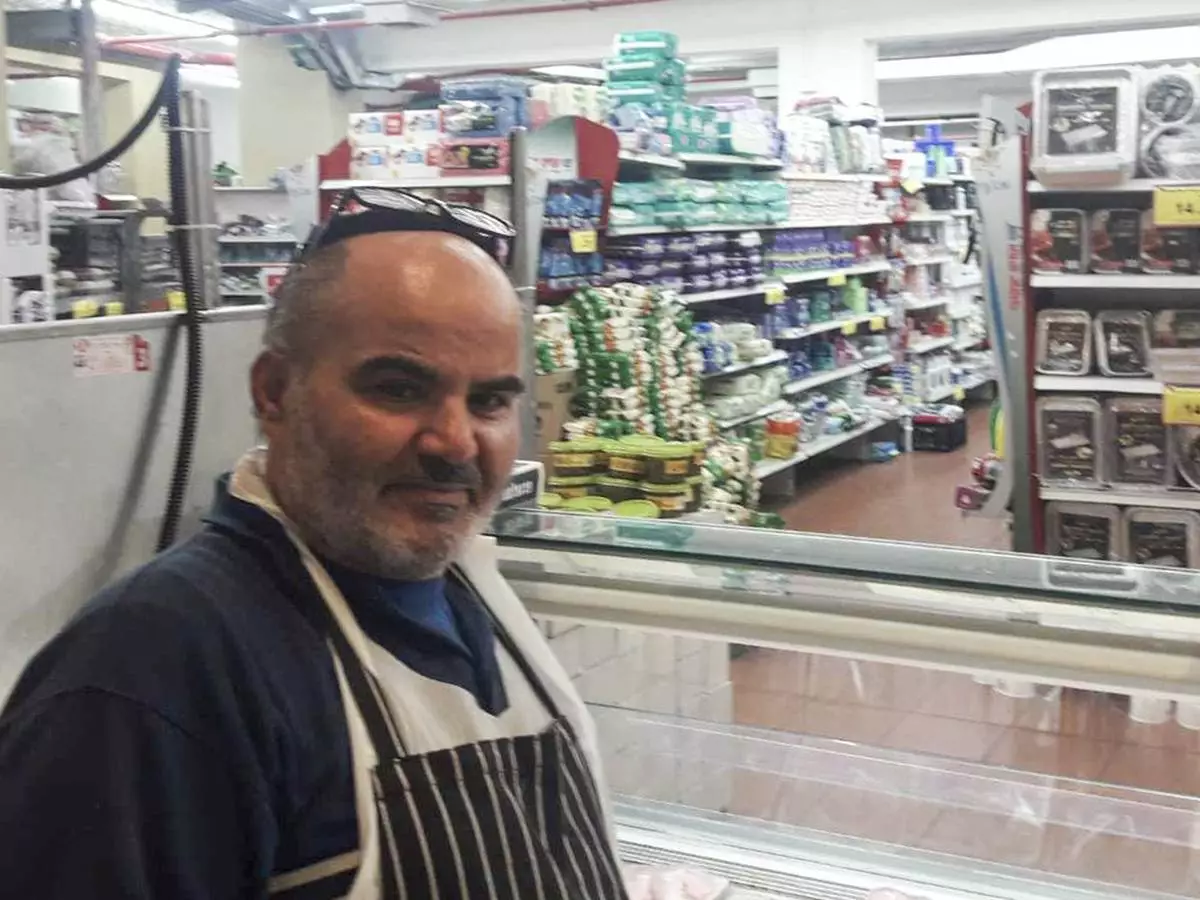
This 2021 photo provided by Haim Parag shows David Ben-Avraham at a supermarket in the Israeli town of Beit Shamesh, where he briefly worked, in Jerusalem. Ben-Avraham, a Palestinian who was born a Muslim but made the almost unheard-of decision to convert to Judaism years earlier, was fatally shot by an Israeli soldier. (Courtesy of Haim Parag via AP)


